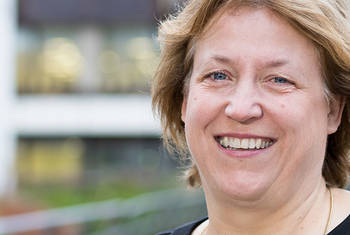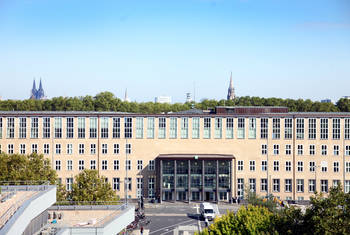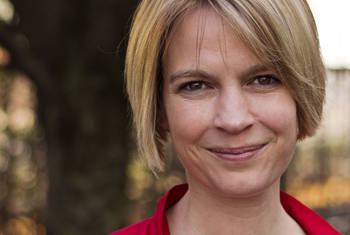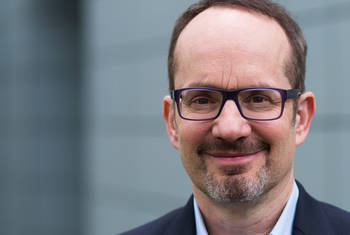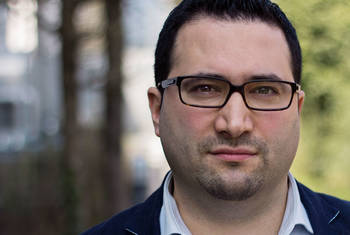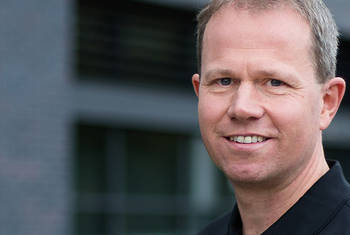Carien Niessen Why Do Cells Not Regenerate After Disease or Upon Ageing?
Carien Niessen is Professor of Molecular Dermato-Oncology in the University of Cologne’s Faculty of Medicine. She is also the scientific coordinator of CECAD (Cologne Excellence Cluster on Stress Responses in Ageing-Associated Diseases). Having conducted her doctoral research at the University of Amsterdam, Niessen completed a postdoctoral fellowship at the Memorial Sloan-Kettering Cancer Centre in New York. A board member of the European Society of Dermatological Science, Niessen won the 2005 ISP and SCUR award.
Area of Research
Medical Systems Biology
since 2009
Professor of Molecular Dermato-Oncology
University of Cologne (Universität zu Köln) (more details)
Clinic of Dermatology, Faculty of Medicine
since 2008
Scientific Coordinator, Principal Investigator,
University of Cologne (Universität zu Köln) (more details)
CECAD Excellent in Aging Research
2002-2008
Junior Research Group Leader
University of Cologne (Universität zu Köln) (more details)
Center for Molecular Medicine Cologne
1997-2001
Postdoctoral Fellow
Memorial Sloan-Kettering Cancer Center (Laboratory of Prof. B. Gumbiner)
1996-1996
Postdoctoral Fellow
The Netherlands Cancer Institute (Laboratory of Dr. A. Sonnenberg)
1991-1996
Ph.D. in cell Biology
The Netherlands Cancer Institute
1991-1996
Graduate school of Oncology
University of Amsterdam
1984-1991
Diploma in Biology
University of Utrecht
- Faculty of 1000
- European Society of Dermatological Science
Prizes
- ROSA “Skin Dryness” Award (2006)
- ISP & SCUR AWARD (2005)
- Charles A. Dana Fellow (1999-2001)
- Dutch Cancer Society Fellow (1997-1998)
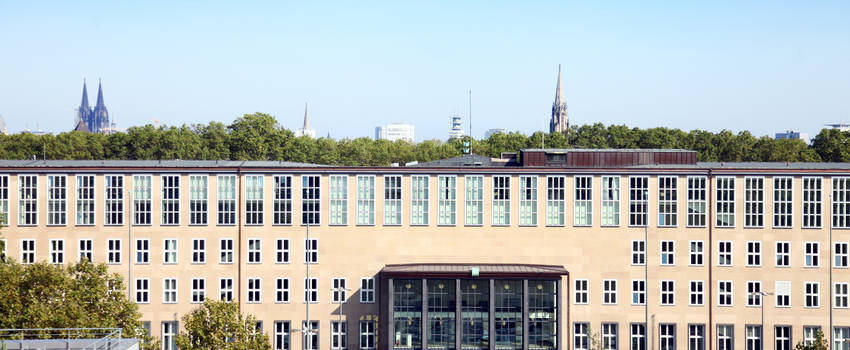 © Thomas Josek
© Thomas Josek

University of Cologne (Universität zu Köln)
Founded in 1388, the University of Cologne (UoC) is the second oldest German university. Its heritage goes hand in hand with a thoroughly modern outlook. The UoC is one of the leading German research universities with an increasing international reach. In 2012 the University won substantial funding in the German Excellence Initiative and is now one of eleven German Excellence Universities. The UoC has a culture which supports individual research as well as medium and large scale collaborative projects. Our flexible approach allows us to reward individual excellence, develop promising fields, build up critical mass and embrace emerging new fields. Research is conducted in our six faculties and in a number of cross-faculty research centers. We are firmly committed to the advancement of fundamental research and have particular strengths in our six competence areas: Aging and demographic change, Social and economic behavior, Quantitative modeling of complex systems, Cultures and societies in transition, Social inequalities and intercultural education and Plant sciences. (Source: University of Cologne)
Map
Our skin epidermis consists of many lifelong regenerating cell layers which provide a barrier that prevents water loss and protects us from heat and radiation. In this video, CARIEN NIESSEN explores why these cells fail to regenerate in cases of disease or with age. Paying particular attention to the influence of cell structure, Niessen’s method focuses on three scale lengths: protein, cell and organ. Outlining the ways in which biochemical and physical signals interact in the operation of the skin barrier, Niessen’s research has important implications not only for our understanding of these processes but also for diseases like psoriasis, diabetes and cancer.
LT Video Publication DOI: https://doi.org/10.21036/LTPUB10801
The Disintegrin/Metalloproteinase Adam10 is Essential for Epidermal Integrity and Notch-Mediated Signaling
- Silvio Weber, Michaela T. Niessen, Johannes Prox, Renate Lüllmann-Rauch, Annika Schmitz, Ralf Schwanbeck, Carl P. Blobel, Ellen Jorissen, Bart De Strooper and Carien M. Niessen
- Development
- Published in 2011


